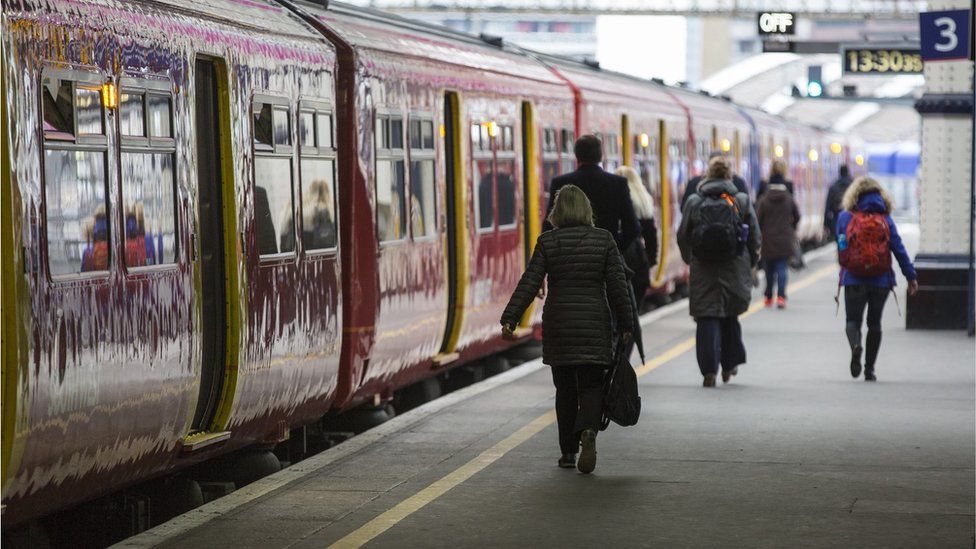ARTICLE AD BOX
 Image source, Getty Images
Image source, Getty Images
By Faisal Islam
Economics editor
When Rishi Sunak confirmed he was scrapping the huge infrastructure project of the West Midlands to Manchester leg of HS2 high speed rail, he said the project had come from a "false consensus" that links between big cities were "all that matters".
The immediate pressing question is whether the UK is capable of delivering projects at this scale, at all. This was a nationally strategic project advertised to the world as a way for Britain's regional cities to attract investment from the biggest investment funds in the world.
All of the Prime Minister's secret conference projects were codenamed after trees. Scrapping HS2 was called "Project Redwood". High speed rail in the UK has been shorn of its branches, and is now left as an expensive stump from London to Birmingham.
The escalating cost of this first phase was not a given. How was it allowed to balloon in cost so much to £45bn - and that's in 2019 prices? The country is left with having built the most expensive part of the line, with the least need in terms of capacity, but without the connections to northern cities that would have been most beneficial.
Did it ever make sense to build what is largely a tunnel from London to Birmingham? Was the cash that should have extended the scheme to the north, the whole point of it, wasted on tunnels to hide it in southern countryside?
With rising costs, the government says that the HS2 scheme might not even give back as much back in benefits, as what is being spent on it. In contrast, some bus projects, for example, can give back £4 for a £1 government investment, they claim.
Tax cut plans?
Opponents accuse the government of scrapping a key piece of strategic infrastructure to create space for pre-election tax cuts. The government is adamant that this is not a way to fiddle the Treasury spreadsheets. While some detail remains on exactly when these new road and bus projects are delivered, their aim is not to free up cash.
The government also argues that the business case for HS2 lent significantly on business travellers. While overall passenger numbers have recovered to pre-pandemic levels, there are fewer business travellers now. Are these behavioural changes enough to mean the West Coast Main Line from London to Glasgow will not be at capacity?
The great prize of all of this was to change Britain's economic geography, to create a counterweight to south east England, and in effect to create a single labour market across three major northern cities. Some of that effect will be retained if the £12bn earmarked for Liverpool to Manchester high speed line is delivered.
The money is being spent instead on everyday transport upgrades, rather than a single grand project. It is likely that the benefits of this will be quicker and more visible on the ground. They also lend themselves to being put on election leaflets next year.
The economic and political consensus had been that the gap between Britain's second tier cities and the capital was significantly bigger than other major economies. Indeed some have argued this was a major cause of Britain's low productivity. The Prime Minister has upended that consensus.
The opposition's response will be very interesting. Rishi Sunak has basically dared Labour leader Sir Keir Starmer to reverse the cancellation decision, cut back the newly announced local transport projects, or borrow billions more.
These plans will probably reach more voters more quickly. But the risk is that Britain also develops a reputation as a place where big long term projects are impossible, and cast iron cross party promises are easily disposed
Mr Sunak has not just scrapped half a train line, he has suggested an entirely different approach to promoting British regional economic growth.

 1 year ago
25
1 year ago
25








 English (US) ·
English (US) ·